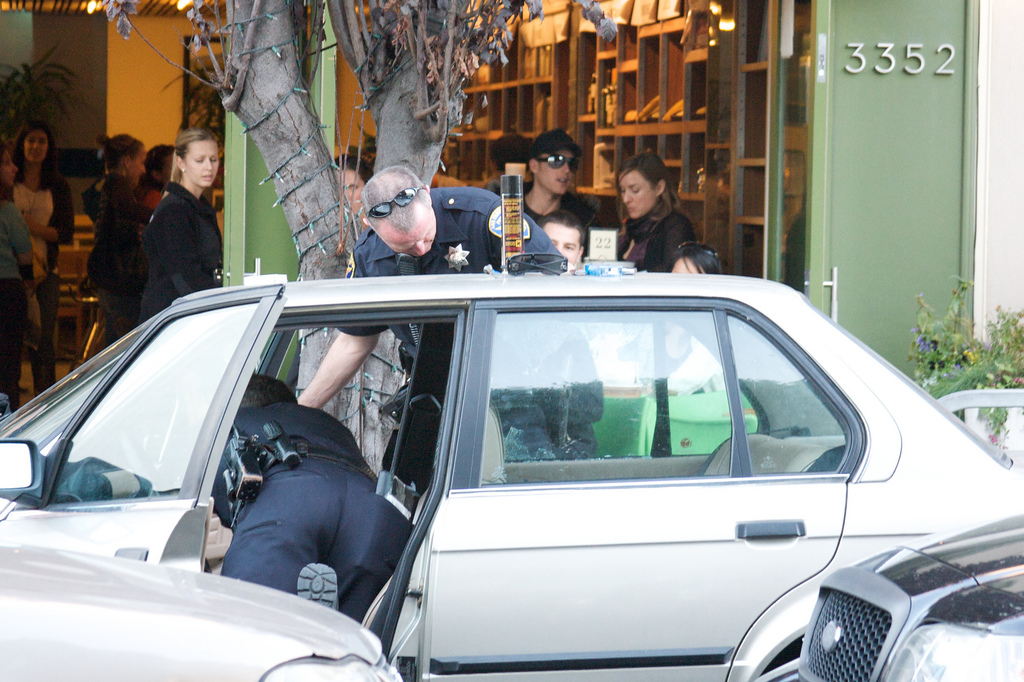 You are driving down the road and all of a sudden see lights and hear sirens coming up behind you. Your stomach drops when you realize those lights and sirens are for you. It’s something that happens to people everyday on roadways across America. For some, the stop ends in a warning. For others, it ends in what could very well be a violation of civil rights.
You are driving down the road and all of a sudden see lights and hear sirens coming up behind you. Your stomach drops when you realize those lights and sirens are for you. It’s something that happens to people everyday on roadways across America. For some, the stop ends in a warning. For others, it ends in what could very well be a violation of civil rights.
Many people hold the misconception that police can search their vehicle simply because they have been stopped. This is not true. The police do not have an automatic right to search your vehicle in most cases. Here are four instances when the police can legally search the passenger compartment of your car:
The search must be limited to the areas in which the officer reasonably expects to find the items they are looking for.
For example, if you are frisked after you exit the vehicle and the officer finds you to be in possession of something illegal, the officer may have reason to search your vehicle. If, on the other hand, you are frisked, nothing is found and you are put in the back of a patrol car, the officer has no basis for a search.
You do not need to give a police officer permission to search your car. This tactic is often used when the officer does not have enough information to conduct an automatic search. Saying “no” to a police officer is easier said than done, but you are well within your rights to do so.
If you have been charged with a criminal offense in Orlando, you need experienced representation. Call our office today for a free consultation. We will review the facts of your case and advise you of your options. Call now or browse our website for information about how we can assist you.
509 W Colonial Dr. Orlando, FL 32804
Law Office Directions
Free Consultation(321) 332-0430
Contact the Law Offices of Katz & Phillips today to speak with one of our attorneys about your case today by filling out the form below, or call us at (321) 332-0430.
"*" indicates required fields